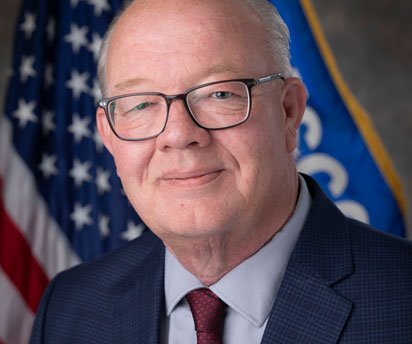The Green County Humane Society has made tremendous strides the past couple of years, stabilizing an organization that was in internal disarray and on the brink of financial ruin. But issues remain, many of them caused by an inadequate shelter building.
Another issue the GCHS board is beginning to tackle is what to do with aggressive dogs at its shelter. The board established a task force earlier this month to determine how to ensure aggressive dogs don't harm other animals or people.
The board should be commended for being out front on the issue, forming a group of people with diverse viewpoints and communicating to the public through a letter to the editor to The Monroe Times. GCHS is attempting to make sure information precedes, and perhaps blunts, any controversy. Other organizations would do well to follow its lead.
The board, in its letter earlier this week, stressed that it's premature to state what ultimate policies and guidelines might be. As it should, the board wants the task force to consider all possibilities and be open to any suggestions.
That said, GCHS likely will end up with only two simple yet problematic options - to move or euthanize aggressive dogs.
Dogs that pose a threat to other animals and to humans are virtually unadoptable. And with space and finances at a premium at the shelter, GCHS can't afford to house indefinitely a number of dogs that cannot, and should not, be adopted. The financial solvency of GCHS and public safety must be the first priorities.
There are organizations that will take in problem dogs. The GCHS task force must explore as many of those possibilities as it can, assessing the feasibility and practicality of working with those outlets. It may be difficult to find enough places that are closer to home and have the capacity to take GCHS dogs.
It probably is unrealistic to ask GCHS to come up with its own facility to provide a segregated home for the aggressive dogs - unless there's a way to tie in such a facility to its ongoing efforts with the city to build a new shelter, and perhaps collect fees from other sources that would bring its problem dogs to Green County. That's a longshot at best.
Since keeping aggressive dogs in its shelter should not be an option, the last resort GCHS may have to accept is euthanizing the dogs that simply have no other place to go. For an organization that takes great pride in being a no-kill shelter, that would be a difficult but perhaps necessary step to take.
The current, revamped GCHS board has proven its ability to make good, sometimes tough, decisions. We trust it will continue to do so with the potentially controversial topic of handling aggressive dogs.
Another issue the GCHS board is beginning to tackle is what to do with aggressive dogs at its shelter. The board established a task force earlier this month to determine how to ensure aggressive dogs don't harm other animals or people.
The board should be commended for being out front on the issue, forming a group of people with diverse viewpoints and communicating to the public through a letter to the editor to The Monroe Times. GCHS is attempting to make sure information precedes, and perhaps blunts, any controversy. Other organizations would do well to follow its lead.
The board, in its letter earlier this week, stressed that it's premature to state what ultimate policies and guidelines might be. As it should, the board wants the task force to consider all possibilities and be open to any suggestions.
That said, GCHS likely will end up with only two simple yet problematic options - to move or euthanize aggressive dogs.
Dogs that pose a threat to other animals and to humans are virtually unadoptable. And with space and finances at a premium at the shelter, GCHS can't afford to house indefinitely a number of dogs that cannot, and should not, be adopted. The financial solvency of GCHS and public safety must be the first priorities.
There are organizations that will take in problem dogs. The GCHS task force must explore as many of those possibilities as it can, assessing the feasibility and practicality of working with those outlets. It may be difficult to find enough places that are closer to home and have the capacity to take GCHS dogs.
It probably is unrealistic to ask GCHS to come up with its own facility to provide a segregated home for the aggressive dogs - unless there's a way to tie in such a facility to its ongoing efforts with the city to build a new shelter, and perhaps collect fees from other sources that would bring its problem dogs to Green County. That's a longshot at best.
Since keeping aggressive dogs in its shelter should not be an option, the last resort GCHS may have to accept is euthanizing the dogs that simply have no other place to go. For an organization that takes great pride in being a no-kill shelter, that would be a difficult but perhaps necessary step to take.
The current, revamped GCHS board has proven its ability to make good, sometimes tough, decisions. We trust it will continue to do so with the potentially controversial topic of handling aggressive dogs.





